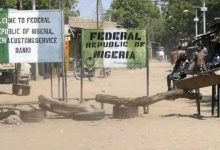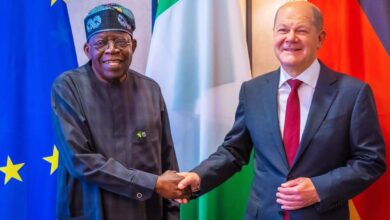FEC Approves Setting Up of Humanitarian and Poverty Alleviation Trust Fund
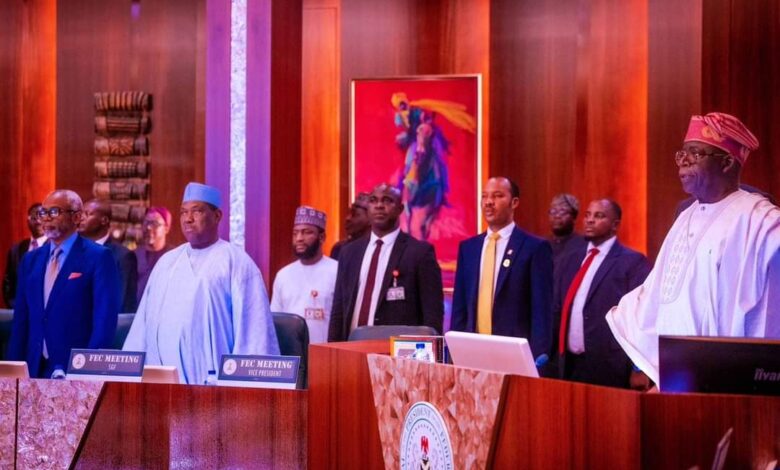
FEC Approves Setting Up of Humanitarian and Poverty Alleviation Trust Fund
Introduction:
In a significant move to address the economic hardships faced by vulnerable Nigerians, the Federal Executive Council (FEC) has granted approval for the establishment of a Humanitarian and Poverty Alleviation Trust Fund. This decision, announced during the weekly FEC meeting presided over by President Bola Tinubu, reflects the government’s commitment to providing support to those in need.
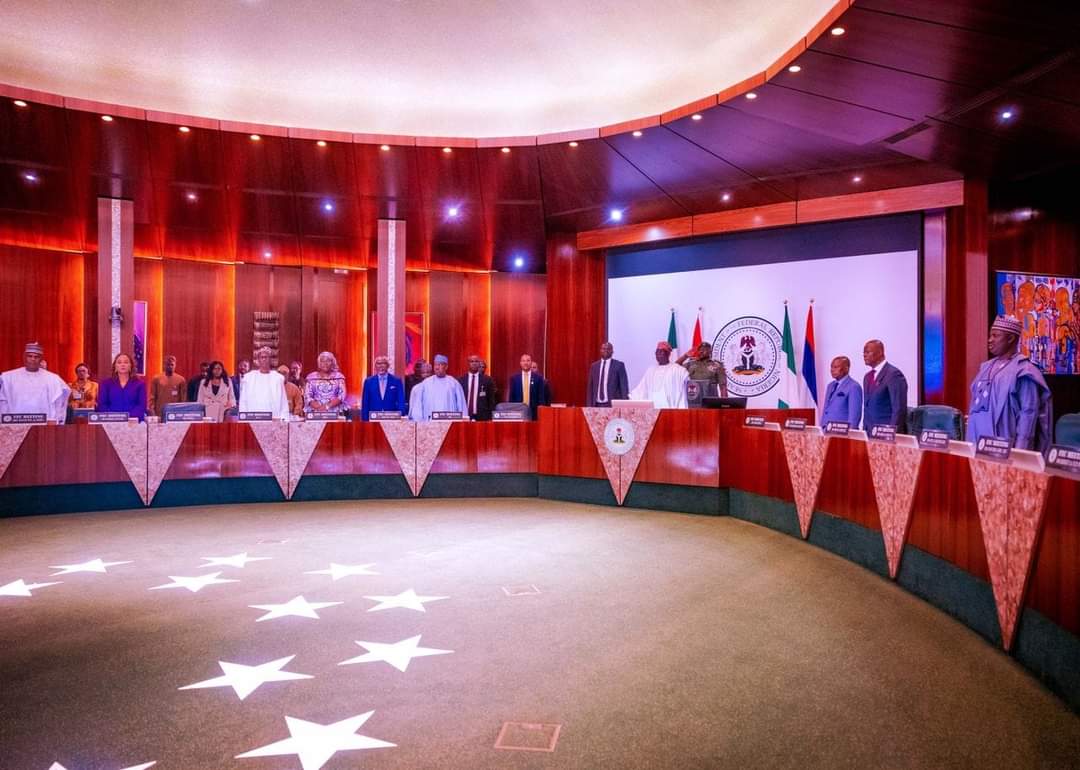
Section 1: The FEC’s Humanitarian Initiative
The FEC’s decision to establish a Humanitarian and Poverty Alleviation Trust Fund marks a pivotal step in the government’s efforts to alleviate the suffering of the most vulnerable citizens. The fund is expected to serve as a vital resource for mitigating economic hardships and addressing humanitarian crises.
Section 2: A Multifaceted Funding Approach
The fund’s financial sustainability is a key aspect of its design. It is projected to accumulate up to $5 billion annually through contributions from various sources, including the government, donors, the private sector, philanthropic individuals, and innovative resource mobilization strategies. This diverse funding approach ensures that the fund has the financial capacity to make a meaningful impact.
Section 3: Governance and Oversight
To ensure effective implementation and transparent management of the fund, a governing board will be established. This board will consist of key stakeholders with expertise relevant to the fund’s objectives. Their role will be to oversee the allocation and distribution of resources, guaranteeing that the fund’s mission is accomplished efficiently.
Section 4: Addressing Humanitarian Crises and Poverty
The primary goal of the Humanitarian and Poverty Alleviation Trust Fund is to enable Nigeria to respond effectively to humanitarian crises, emergencies, and internal displacement challenges. It will also play a pivotal role in addressing the ongoing issue of poverty in the country. The fund’s flexibility and resources are geared towards providing timely assistance and relief.
Section 5: Ratification of the African Charter Protocol
In addition to the trust fund, the FEC has approved the ratification of the African Charter protocol on the protection of the rights of older persons in Nigeria. This move signifies Nigeria’s commitment to ensuring that the rights and well-being of older citizens are protected and upheld. The government, led by President Bola Ahmed Tinubu, is dedicated to the welfare of older people.
Also Read
list of Courses Offered At Federal polytechnic kabo
fedeal polytechnic kabo part time programs
federal polytechnic kabo admission portal
Federal Polytechnic Kabo 2023/2024 Admission Requirements
How To Apply for a Lecturing Job at Federal Polytechnic Kabo in Kano State, follow these steps
Section 6: The Path Forward
The establishment of the Humanitarian and Poverty Alleviation Trust Fund reflects the government’s commitment to its “Renewed Hope Agenda.” It is a significant stride toward alleviating the suffering of vulnerable Nigerians and providing a safety net during times of crisis.
Dr. Betta Edu, Minister of Humanitarian Affairs, has noted that 30 percent of the fund’s funding will come from the federal government, while the remaining 70 percent will be contributed by donor agencies, the private sector, and development partners from other nations. This diverse funding approach ensures a robust financial base.
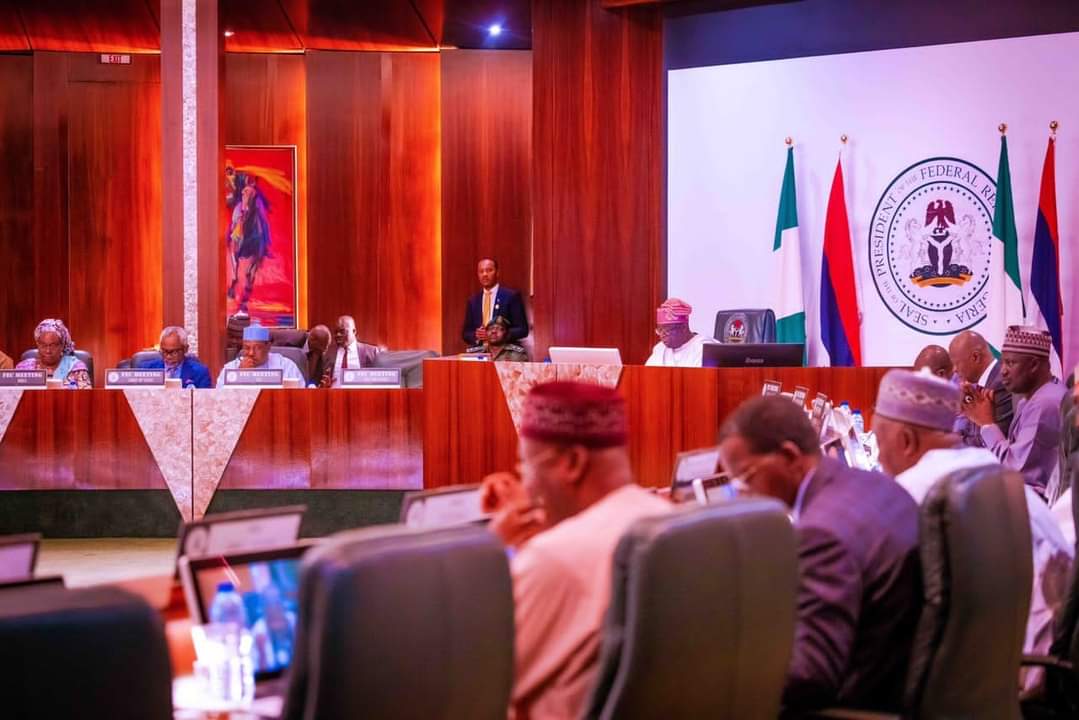
The FEC’s Humanitarian Initiative: A Pledge to Alleviate Suffering
In a resounding display of commitment to the welfare of Nigeria’s most vulnerable citizens, the Federal Executive Council (FEC) has unveiled a groundbreaking Humanitarian and Poverty Alleviation Initiative. This blog post delves into the details of this pivotal humanitarian effort and its far-reaching implications.
Section 1: A Timely Response to Economic Hardship
The FEC’s Humanitarian Initiative is a response to the pressing economic challenges faced by many Nigerians, particularly those most in need of support. It underscores the government’s unwavering dedication to mitigating hardships and ensuring that no one is left behind.
Section 2: Presidential Leadership
President Bola Tinubu, presiding over the weekly FEC meeting, conveyed the council’s approval of this initiative. This demonstrates the highest level of commitment from the nation’s leadership to address the issues of poverty and humanitarian crises head-on.
Section 3: Financial Sustainability
At the core of this initiative is a multifaceted funding approach. The Humanitarian and Poverty Alleviation Initiative is projected to amass up to $5 billion annually, drawing contributions from various sources. These include the federal government, donors, the private sector, philanthropic individuals, and innovative forms of resource mobilization.
Section 4: Oversight and Governance
The FEC has outlined a clear structure for the governance and oversight of the initiative. A governing board, comprising key stakeholders with expertise relevant to the initiative’s objectives, will be established. This board’s role is to ensure transparent management, resource allocation, and effective implementation.
Section 5: Addressing Multiple Challenges
The Humanitarian Initiative serves a dual purpose. Firstly, it aims to enhance Nigeria’s capacity to respond effectively to humanitarian crises, emergencies, and internal displacement challenges. Secondly, it is poised to play a pivotal role in the ongoing fight against poverty in the country. The flexibility and financial resources provided by this initiative are designed to offer timely assistance and relief.
Section 6: Protecting the Rights of Older Persons
In addition to the Humanitarian Initiative, the FEC has given its approval for the ratification of the African Charter protocol on the protection of the rights of older persons in Nigeria. This signifies the country’s commitment to safeguarding the rights and well-being of its older citizens. It’s a testament to the government’s resolve to ensure dignity and protection for this demographic.
Section 7: A Step Toward Renewed Hope
The launch of the Humanitarian and Poverty Alleviation Initiative aligns closely with the government’s “Renewed Hope Agenda.” This endeavor is a significant stride toward reducing the suffering of Nigeria’s most vulnerable citizens and providing a robust safety net during times of crisis.
Section 8: A Diverse Funding Approach
Dr. Betta Edu, Minister of Humanitarian Affairs, has detailed the funding structure, with 30 percent of the initiative’s financing originating from the federal government. The remaining 70 percent is expected to be contributed by donor agencies, the private sector, development partners from other nations, and more. This diverse funding approach ensures the initiative’s robust financial footing.

A Multifaceted Funding Approach: Strengthening Humanitarian Initiatives
The success of any humanitarian initiative is often intrinsically tied to the availability of adequate funding. In the context of the Federal Executive Council’s (FEC) newly approved Humanitarian and Poverty Alleviation Initiative in Nigeria, a multifaceted funding approach has emerged as a cornerstone for its effectiveness. In this blog post, we explore the significance of this diverse financial strategy and its potential to drive meaningful change.
- The-best-private-university-in-kano-state
- How to apply for admission to Azman university kano
- Azaman university kano Students portal
- Azaman university kano school fees
- Azman University Recruitment process
- Azman university kano school fees for Medicine
- Azman university kano school fees for Nursing
Section 1: The Need for Adequate Funding
Humanitarian and poverty alleviation efforts demand substantial financial resources to address the complex challenges they aim to tackle. Whether it’s responding to emergencies, aiding vulnerable communities, or combating poverty, funding is the lifeblood of these initiatives.
Section 2: The FEC’s Multifaceted Approach
The Federal Executive Council’s Humanitarian and Poverty Alleviation Initiative embraces a multifaceted funding approach, which encompasses a wide range of contributors and sources. This approach recognizes that a singular funding stream may not suffice to meet the diverse needs of a nation.
Section 3: Government Commitment
A substantial portion of the initiative’s funding, approximately 30 percent, is expected to be provided by the federal government. This commitment signifies the government’s dedication to alleviating poverty, responding to humanitarian crises, and supporting vulnerable communities.
Section 4: Donor Agencies and Development Partners
To bolster the financial resources available, the initiative is open to contributions from donor agencies and development partners. This support allows for a broader reach and the ability to respond swiftly and effectively to humanitarian crises.
Section 5: Private Sector Engagement
The private sector is recognized as a significant contributor to the initiative. Private companies and businesses are encouraged to participate through various means, including corporate social responsibility programs, donations, and partnerships. Their involvement can bring both financial resources and valuable expertise to the table.
Section 6: Philanthropic Individuals
Individuals who are passionate about making a difference can play a pivotal role in financing the initiative. Philanthropic individuals can contribute substantial sums to support humanitarian and poverty alleviation efforts, making a direct impact on their communities and the nation.
Section 7: Resource Mobilization
In addition to traditional funding sources, the initiative is exploring innovative forms of resource mobilization. These could include crowdfunding, public-private partnerships, and creative financial instruments to maximize the available funds.

Section 8: A Robust Financial Base
The combination of these diverse funding sources ensures that the initiative has a robust financial base. This multifaceted approach reduces dependency on a single source, making the initiative more resilient and adaptable in the face of evolving needs and challenges.
Conclusion:
The FEC’s approval to establish the Humanitarian and Poverty Alleviation Trust Fund is a testament to the government’s dedication to improving the lives of the most vulnerable in Nigeria. This initiative will offer much-needed support to those facing economic hardships and provide an effective response to humanitarian crises. It is a vital step towards fulfilling the Renewed Hope Agenda and ensuring a brighter future for all Nigerians.
